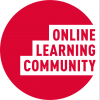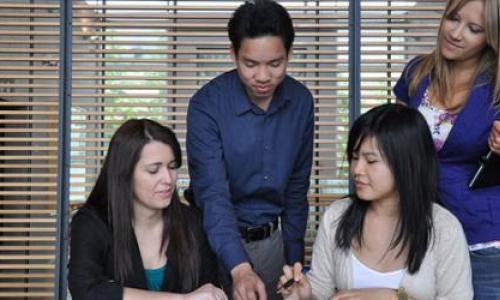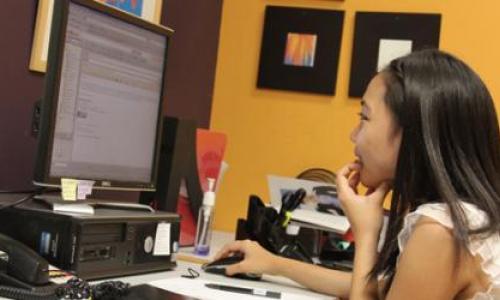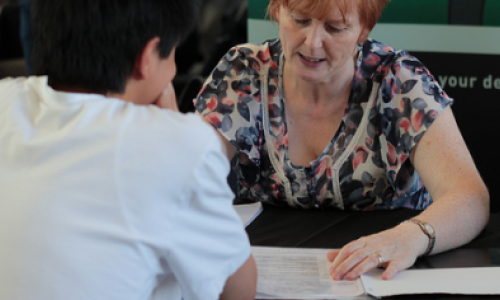
The purpose of a cover letter is to provide a brief introduction of both you and your resume in response to an advertised position or in anticipation of a possible opening. A good cover letter will effectively highlight your strengths and link your abilities directly to the position and the organization, thereby sparking enough interest to get you an interview. The following is a set of helpful hints to keep in mind as you write. Be sure to also check out the Career Services (MBC 0300) student resource lounge for lots of examples of effective cover letters.
Before You Begin Writing
Analyze Yourself: Consider what you have to offer and what skills/ qualifications are relevant to the position and organization.
Analyze the Advertisement: Take note of the description of the work, not simply the job title. Assume that the duties outlined are the ones the employer considers most important and think about how to link your skills and experience directly to them. Always keep the employer’s needs in mind and don’t mention items that are irrelevant to the position.
Note the Qualification Listed: Consider how your qualifications match this list, and if they do not exactly fit, think about how or why you feel your qualifications would be relevant.
Research the Organization: Conduct thorough research on the organization so that in your letter you are able to show the employer that you have done your homework and that there is a match between you and the organization. Extra research will show the employer that you are genuinely interested in the organization and how it works. Good research sources include the following: industry trade publications, key newspapers, annual reports and web sites. Here is a list of general questions to keep in mind as you do your research:
-
What is the current state of the organization/industry?
-
What are the key problems and issues currently being faced by the organization?
-
What are the key barriers or roadblocks that stand in the way of solving their problems?
-
What knowledge, skills and capabilities are needed to remove these barriers?
-
What are the organization’s strategic goals?
-
What new knowledge, skills, & capabilities will be needed to realize these goals?
Addressing the Letter: Whenever possible, find out the name of the individual who will be doing the interviewing, and address your letter accordingly. Be sure to obtain the correct spelling of the name and specific title of this individual.
Model of a Cover Letter for an Advertised Position
Return Address
Date
Name of Contact Person & Title
Organization's Name & Address
Dear (Contact Person),
Introduction ( 1-3 sentences):
-
Name the job for which you are applying and tell how you learned about it
-
State that you are qualified to do the job based on your background (give the employer a sense of your confidence in your own abilities)
-
State that you are very interested in the job or the organization and indicate a specific or unique reason why this job or organization appeals to you, which in turn shows that you have done some research - keep this brief)
Body (1-3 paragraphs):
-
Determine what you are going to discuss in terms of your education, work/volunteer experience, skills, interests, personality and beliefs (focus on the ones which address the job's most important requirements)
-
Subdivide the body into sections - one possibility is: first paragraph describes what you have to offer, the second describes your interest in and knowledge about the organization
-
State the skills/strengths you will bring to the job (address all those asked for in the job advertisement) and include examples or descriptions of how you have acquired and demonstrated each skill/strength
-
Explain how the skills/strengths you mention would be useful in the new position
-
When including an example of your abilities be specific to allow the employer to visualize what you have done and can do (quantify: how long did you do it, how much responsibility did you have, what techniques did you use and why were they useful?)
Conclusion (1-3 sentences):
-
If your body section is more than one paragraph, restate that you are qualified to do the job, but make this sentence different from the one in your opening paragraph
-
Thank the employer for taking the time to consider your application
-
State that you would like to meet in person to further discuss the job and your qualifications or that you hope to hear from them soon
-
You may also want to tell the employer where and when you can be contacted if they require further information.
(optional)
Sincerely, (Yours Truly etc.)
(sign your name, BLUE ink is preferred)
Your Name (Typed)
Enc. (this indicates that other documents accompany the letter - resume, transcripts, etc.)















